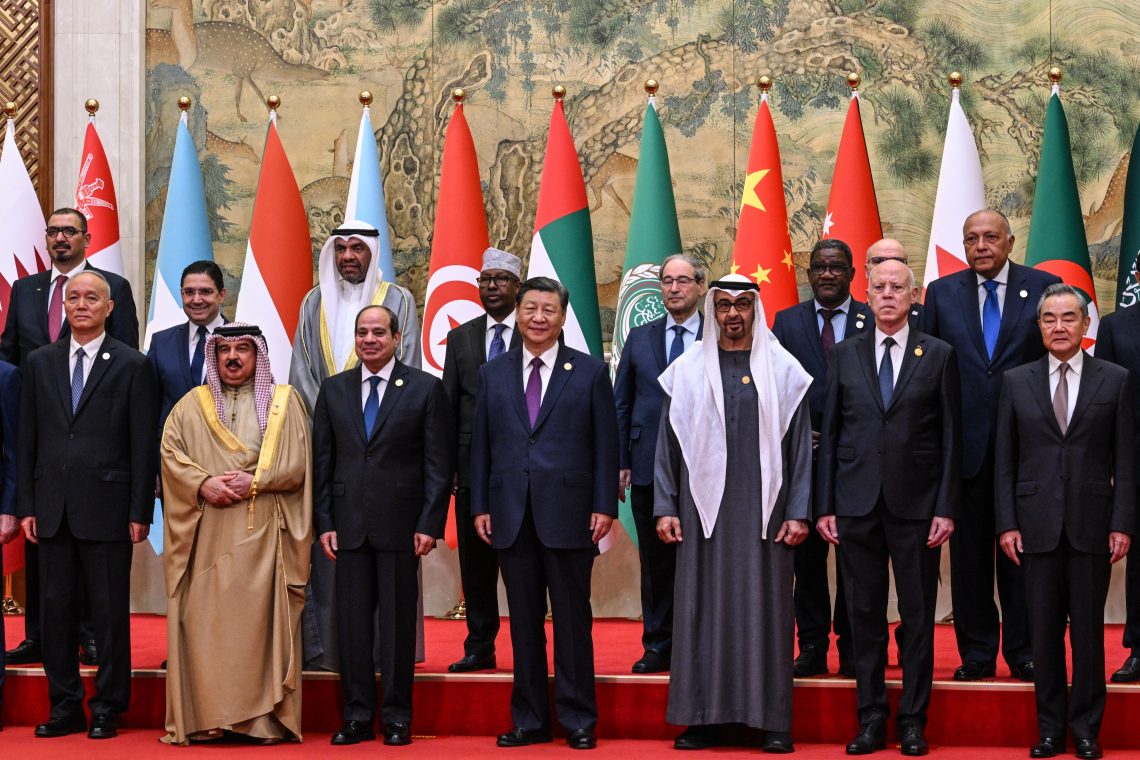
Published 25/02/2025 16:20 | Edited 25/02/2025 16:49
China is expanding its performance in the Middle East by opposing Donald Trump’s proposal to take control of the Gaza Strip and reset its population. The Chinese government reaffirmed its support for the creation of a Palestinian state and criticized the US approach, which has been the target of strong rejection between Arab countries and the UN.
“Gaza belongs to the Palestinians and is an inseparable part of Palestinian territory,” said China’s Deputy Foreign Minister Chen Xiaodong, in a meeting with Arab countries ambassadors in Beijing on February 8. Chancellor Wang Yi also reinforced this position by stating that “Gaza is Palestinian territory and should not be a victim of international politics.”
Beijing’s position occurs at a time when the United States renews its support to Israel. The recent visit of Secretary of State Marco Rubio to Jerusalem and the sending of 1,800 American pumps to the Israeli Army increased tensions in the region and generated concern about the future of the ceasefire between Israel and Hamas.
China challenges the US and strengthens ties in the Arab world
While Trump and Netanyahu maintain an aggressive stance, China presents itself as a diplomatic alternative in the Middle East. Beijing has intensified ties with Arab countries, defending a solution based on UN resolutions and the recognition of a Palestinian state within the 1967 borders.
In response to the aggravation of the humanitarian crisis in Gaza, China sent 60,000 food packages, transported via Jordan. According to Guo Jiakun, spokesman for the Ministry of Foreign Affairs, “the humanitarian crisis in Gaza needs continuous attention and greater international support.”
Meanwhile, Washington has announced the full suspension of his foreign aid through USAID blockage.
Beijing’s position also reflects economic concerns. The conflict has impacted trade routes on the Red Sea, where Houthis rebels attacked vessels, affecting China’s supply chains to Europe. Beijing seeks a diplomatic outcome that stabilizes the region and protects its commercial interests.
Pragmatism: Beijing maintains a relationship with Israel, despite divergences
Despite the tension generated by the Chinese position on Gaza, Beijing seeks to maintain ties with Israel. International Relations Minister Wang Yi met last week with Israeli chancellor Gideon Sa’ar at the Munich Security Conference at the first high -level meeting between the two countries since the beginning of the war.
“China always sees the development of Israeli relationships from a long -term perspective,” said Wang, highlighting the strategic partnership between the two countries.
Israel is one of the few developed countries that participate in the initiative of the belt and route, Chinese project of global infrastructure. Beijing is interested in maintaining investments in Israeli technology and infrastructure, despite the divergences of Gaza.
On the other hand, Sa’ar asked Beijing to adopt a more “balanced” position in the region and defended more economic pressure on Iran.
China Realualy Strategy in Syria
Chinese influence in the Middle East also expands to Syria, where the government of Bashar al-Assad has recently been overthrown. The new leader, Ahmed Al-Sharaa, met the Chinese ambassador in Damascus, Shi Hongwei, in the first bilateral contact since the regime change.
Beijing has concerns about the presence of Uigures combatants linked to Turkistan Islamic Party, a group considered a terrorist by the Chinese government. China seeks guarantees that these militants will not represent threat to their internal security and evaluate their involvement in the reconstruction of Syria.
A new balance of power?
China’s growing diplomatic presence in the Middle East indicates a change in power dynamics in the region. While the US bets on military support to Israel, Beijing advances with diplomacy and humanitarian aid.
The confrontation of visions between Trump and Xi Jinping can redefine strategic alliances, placing China as a key actor in conflict mediation in the Middle East. The outcome of the crisis in Gaza and the reconstruction of Syria will be decisive to consolidate this new Chinese role in the region.
Source: vermelho.org.br

